Graham Reid | | 9 min read
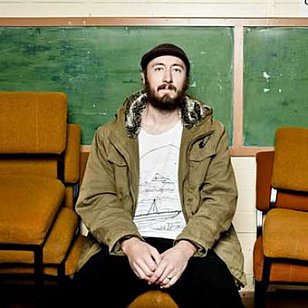
The cafe where we meet is very nice and attracts a particular clientele, as you'd expect. It is in Herne Bay, the country's first $2 million suburb apparently.
Neither Dave Baxter nor I live around here of course – he's out west in Massey and I'm a few suburbs to the south – but with his hipster beard and beanie he fits in better than I do.
Neither of us are good for business though. His record company has taken over a large side room but I'm drinking water and, because he's got back-to-back interviews, he's pacing his caffeine intake.
He's had one cup of tea and declines another.
Baxter – who performs as Avalanche City – has quite a lot to talk about: He's here to promote his second album We Are For the Wild Places which was mixed in Seattle by Chris Walla, formerly of Death Cab For Cutie, but also we talk about how his career took off with rapidity four years ago on the back of his huge selling single Love Love Love (used on a TV2 promo clips) and then the album Our New Life Above Ground.
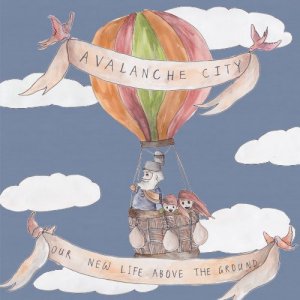 But there has been a very long gap after Our New LIfe Avobe Ground until this new one prefaced by the single Inside Out, so . . .
But there has been a very long gap after Our New LIfe Avobe Ground until this new one prefaced by the single Inside Out, so . . .
When did you actually complete the album?
Well, it is done now because I've just had the first CD pressed. I'd gone over to Seattle to get it mixed by Chris and when I got back to New Zealand I wrote a new song and recorded that, and that held up the album by four months because it was so close to Christmas.
But you really wanted that song on the album?
Yeah.
And that was?
It was Inside
Out! So the album is never really done until the CD is made. Vinyl
will come a bit later because we missed the boat on that. There's an
insane wait time for records to get pressed, it will be between 10
and 12 weeks. Everyone is getting vinyl done because there are people
who want something special.
That resurgence in vinyl is about people wanting to hold music in their hand.
I want to ask you about a few years ago. I know you didn't have overnight success because you'd done a number of other things before Love Love Love, but in a sense you did have it. Did that make life a little more difficult going into this album.?
It's always a tough thing when you've got something like that in your background. But I can't think about that, and it wasn't something you could have orchestrated.
Love Love Love was going slow at radio until TV2 picked it up and if they hadn't it just would have gone moderately.
It didn't make it harder but made you realise the value of having something like that.
I try not to get too caught up in that otherwise I'd end up losing sleep.
And I've had that on one song which is more than what a lot of people ever get. That might never happen again, but it would be cool if it happened with this album. To get that lucky twice would be rare.
Oh, I don't know, there's the career of the Beatles, the Bee Gees . . .
(Laughs) Yeah. I'm trying to set my expectations low. You can only write the music you want to hear otherwise if you get caught up in what might work on television or radio, it's not worth the trouble.
The genesis of a song is with a guitar in hand?
Not always, it's more about . . . I have to be creative about the way I write my songs. If I start a song with a guitar in my hands I'd pretty much write the same song every time. I have to be creative about it so I'll be driving down the road and a phrase will pop into my head, and I'll try to write a song around that phrase.
There's no one way that I write a song. I'll start with lyrics first or with a drumbeat. Or I'll have a whole track and then write lyrics to that. Part of the process for me is to be creative about the way you are being creative, otherwise you become stagnant.
When you are halfway through or have enough of what you think is going to come out, do you have a notion about the whole arrangement? Like, I'll bring horns in here . .
Yeah, pretty much. Usually I have a good idea of how I want it to be. There's the odd song I'm unsure about and those are the worry songs, because I end up re-recording them three or four times. There are a couple of those on the album that got scrapped and recorded again.
I think I recorded Faultline about four different times and it came out as a very different song in the end.
Because I'm a producer and think like that . . . I didn't start off in music writing songs, I started writing instrumentals and music not lyrics, so I am very musically minded. I always have an idea in my head about how I want it to sound. When I think of a new song I'm not thinking generally about lyrics, it's more how the soundscape and textures work together.
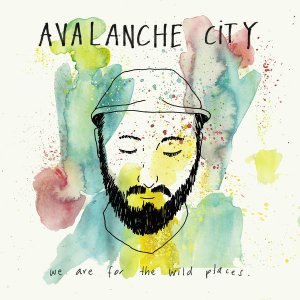 Let's take Inside Out for example.
What I hear is a piece of music which builds and grows and you tap
your inner Bee Gees there, but then the horns come in. And there's a
stunning bass line. When you conceived that, was most of it in your
head?
Let's take Inside Out for example.
What I hear is a piece of music which builds and grows and you tap
your inner Bee Gees there, but then the horns come in. And there's a
stunning bass line. When you conceived that, was most of it in your
head?
The way I wrote that was I played an electric guitar line and recorded that. I couldn't figure out anything to go with that so just played it for about five minutes and then went back and sang over it. I knew I wanted it to be really simple and stripped back but when it got to the second chorus I just knew it had to have horns coming in.
It's mellow and builds gradually, but I wanted it to have that release moment where a song builds and builds, and it was hinting at that release moment.
A song doesn't pop into my head fully formed but I listen through to a song front-to-back with my audience-head on and think, “What am I expecting to happen here? What would be really cool to have in this chorus?”
That was how I came up with how it just drops to snare at the end of the first chorus. I wanted what was unexpected but cool, but just to drop out all the drums and leave just that snare.
You wrote the horn charts? You play
just about everything on the album?
Yeah, but I got in more
people. On my last album I played just about everything, but on this
one I'm being a little bit more honest and understanding that I'm not
the best piano player or drummer . . . so there were certain songs I
played piano but there was were some I needed someone awesome on
piano. It was a good decision.
And you did this in your own studio.
Yes, in Massey. My whole theory is to have just a couple of pieces of gear, but really good gear. A studio can have tons and tons of gear but if you are recording you only use one mike, but have a really good one.
The main advantage of a good studio isn't the gear but the people you work with. I think artists need to think more about the people they have around them when they are recording rather than what gear they have.
The main advantage of a good studio is a really good producer or engineer, not the gear.
The reason you need a producer, they say, is to have outside ears on project. But you produce yourself. How do you get the outside ears?
I have a couple of friends I trust and you definitely have to have outside ears. My manager is really good and there are friends I have that I can send songs to and they are honest with me.
Sometimes if they don't like it you can tell by their reactions, but in some aspects it's harder not to have a producer because there is no one to say yes or no.
But I'm such an ADD control-freak in the studio that I don't know that I could fully translate to a producer what I have in my brain for the sounds.
If I ever got to a point where I had an album but I didn't know how I wanted it to sound then a producer would be invaluable.
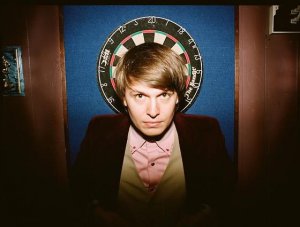 There is a consistency of vision
across the album though, but they are distinct songs. How did you meet
up with Chris Walla (pictured)?
There is a consistency of vision
across the album though, but they are distinct songs. How did you meet
up with Chris Walla (pictured)?
I saved all my recording budget for mixing so pretty much had free rein on who I wanted to do it. I thought if I never got a chance to mix my album ever again, who would that one person be that I wanted to spend time with and learn from, and I'm just a fan of his style of music and the way he approaches production.
What does he have that others don't?
It's something I didn't realise at the start, but he is meticulous. He cares so much. That's the thing with a lot of creative people, there's probably a similar quality in really good directors or novelists, those that care about it the most are those who do the best job.
I met him at a meet'n'greet when he played a show in Wellington but when I went to Seattle I didn't tell him I'd met him.
My A&R guy had worked with him before so there was a connection. He takes his time on the tracks. Some mixers will do a song and half in a day, but he generally took about two or three days on each song. He did that before I got there and he'd got inside it and had figured out what parts needed to be the main aspects of the song and figure out the angle. Nobody else has time to do that, but he makes the time to do it.
It's a leap of faith on your part though isn't it?
I actually did a mix shoot-out with three people to mix the single: he mixed one, a guy called Cenzo Townshend in the UK did one, he's like the UKs hottest mix engineer and costs three time as much as Chris, and also a guy in New Zealand Nic Manders.
Chris Walla just took change on board really well.
Everyone got their tracks back to me and I asked for a couple of tweaks on all of them and Chris Wall just nailed it. He had absolutely no ego and was totally fine to change things, and the same with Nic Manders.
Cenzo Townshend? I didn't get any changes is in, but he wasn't as good as Chris anyway.
You pay them to do this presumably?
Yeah, but there's like a mix rate, it's not a full rate. So Chris was head and shoulders above the UKs hottest mix engineer. And he was cheaper and better.
A lot of the delay getting the album finished wasn't just me writing the last song. I think I'd expected to have this out about three years after the last album, but we ended up waiting nine months for Chris to mix it because we were trying to get him to do it before he mixed the new Death Cab album. But they started recording and had a month break. They scrapped the album and started from scratch so that took them six months longer than they thought and that's why my album got pushed back so far.
But I really wanted him to do it and it was worth the wait.
It did get to the point where it was just being put off and put off. I thought at the end of nine months that if he put it off again I was going to find someone else, but then he could and I am so glad.
How did you survive all these years,
you have a working studio I guess?
No, my studio is my own. I
record some people but not that many.
I survive off publishing and Apra stuff. It's not just Love Love Love because, and I don't know what it is, but all the other songs on the album synch really well on television shows here and overseas.
So I couldn't survive without the publishing, it's the only way artists can only survive anymore, People like me aren;' big enough to do huge shows, but music takes up so much time you can't really have another job.
And my music being played on ads? I don't have a problem with that, I think it's cool. Every time I think about that I remember Leonardo Da Vinci had to do portraits and design war machines.
Every time I think about my music going on ads I think, “It's okay, I'm an artist, I have to earn money somehow”. I enjoy the challenge of commercial work too.
The most rewarding part is delivering the music and getting paid straight away. In my world I write a good song and think, “Hopefully I can make some money off this . . . in two years time!”

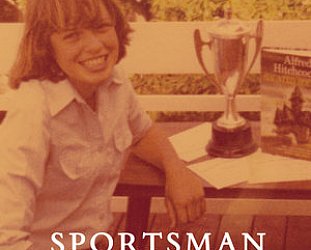
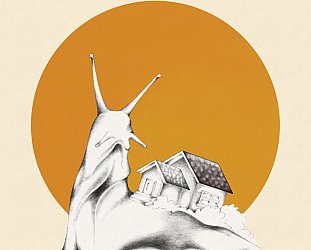

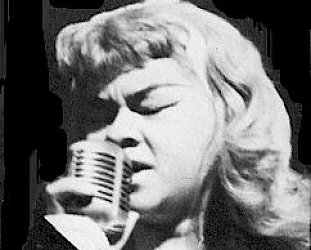
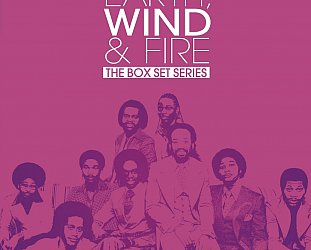
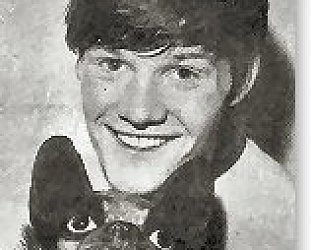
post a comment